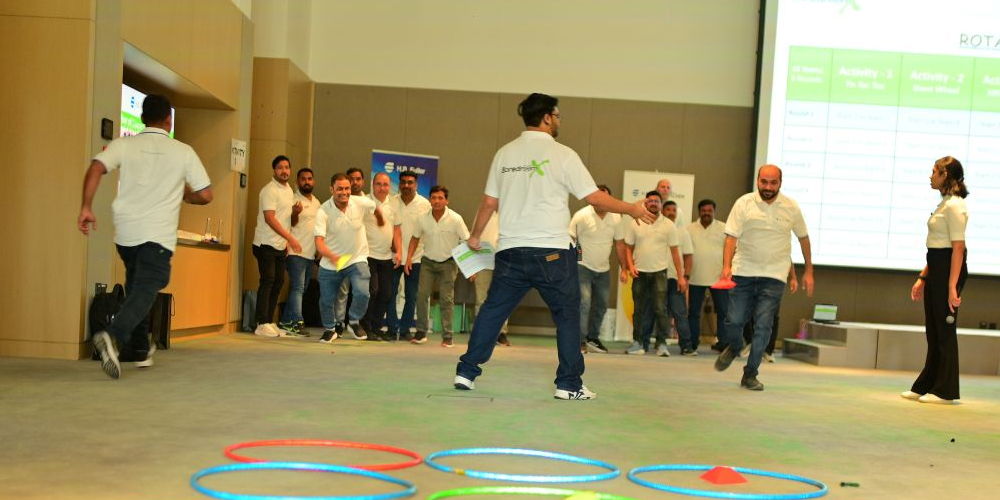How Experiential Activities Improve Emotional Intelligence in Leaders
Leadership today is no longer just about giving orders or having all the answers. It’s about people, understanding them, connecting with them, and leading them with empathy and confidence. In short, it's about emotional intelligence (EI). And one of the most powerful ways to build EI in leaders isn’t found in books or boardrooms, it's through experiential activities.
At TheBoredroomX, we believe that leaders learn best by doing. Whether it's a high-stakes treasure hunt in the desert or a murder mystery that challenges your thinking, experiential activities tap into real emotions, real teamwork, and real insight. Here’s how these hands-on experiences can help sharpen a leader’s emotional intelligence.
- Self-Awareness through Action
When you're dropped into an unfamiliar situation—say, racing to solve clues before another team in a sand-swept scavenger hunt—you can’t rely on your title or experience alone. You have to rely on your instincts. Leaders quickly discover their own strengths and blind spots. They notice how they react to stress, whether they jump in too fast, hesitate too long, or lose patience under pressure.
These “in-the-moment” experiences give leaders a clearer mirror to see themselves—something that’s hard to get in everyday work life.
- Building Empathy by Walking in Others’ Shoes
Empathy is one of the key parts of emotional intelligence. But how do you teach empathy? You can’t just hand out a guidebook.
In experiential activities, leaders often have to work in teams where they don’t lead, or take on roles they’re unfamiliar with. Maybe they’re following someone else's instructions for once. Maybe they’re relying on the quietest member of the group to crack a code. In those moments, they feel what it’s like to be in someone else’s shoes—and that changes the way they lead.
- Better Communication, One Game at a Time
Experiential activities demand clear, honest, and often quick communication. You don’t have time for long meetings or vague instructions. You have to say what you mean, listen to others, and understand both the words and the emotions behind them.
Leaders walk away from these challenges knowing how to express themselves better and how to truly listen—two skills every great leader must master.
- Managing Emotions Under Pressure
Imagine your team is just minutes away from winning an intense challenge. One wrong move and it could all fall apart. Tempers might flare. Stress levels rise. In these high-pressure moments, leaders learn how to manage their emotions—not just hide them, but control them, direct them, and even use them to inspire others.
The more leaders face these moments in a safe, playful setting, the better they handle them in real life.
- Stronger Relationships, Stronger Teams
When leaders share real experiences—fun, challenging, and even silly ones—with their teams, something special happens. Walls come down. Trust is built. Leaders become more approachable, and their teams feel more connected.
These deeper connections aren’t just feel-good moments; they lead to better teamwork, smoother communication, and stronger company culture.
Developing emotional intelligence isn’t a one-time thing. It’s a journey. And experiential activities are like shortcut paths that speed up learning while making it fun and meaningful.
At TheBoredroomX, we design experiences that aren’t just about winning games—they’re about winning insights. When leaders step outside the usual routine and take part in something unexpected, they don’t just become better teammates—they become better humans.
So, the next time you think about leadership training, think beyond the boardroom. Think treasure hunts, murder mysteries, escape rooms, desert challenges—and everything in between. That’s where real leadership begins.








